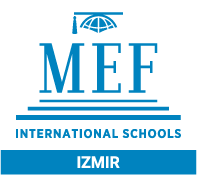The Upper Secondary Curriculum: Grades 9 – 12
In Grade 9, students begin a two-year course of study leading to the Cambridge International Examinations (CIE) International General Certificate of Secondary Education (IGCSE). The CIE IGCSE curriculum provides a broad study programme across a wide range of subject areas. It encourages students to develop oral and practical skills, investigative and problem-solving skills, to apply skills, knowledge and understanding and to learn to work as part of a team but also independently.
Students in Grade 9 are required to study 8 subjects drawn from 5 different subject areas (Science, Mathematics, Languages, Humanities, Creative & Vocational) aiming at taking IGCSE examinations in many of them in Grade 10.
Building on the skills acquired at IGCSE level, students in Grade 11-12 can choose a combination of courses based on the CIE programmes for Advanced Subsidiary Level (AS Level) and Advanced Level (A Level). AS Level courses are typically the mid-point of an A Level. A student is qualified to take the AS Level examination after completing one full year of study of a particular course. After being awarded that AS certificate, the student can decide to continue studying all or some of his chosen subjects to A Level prior to graduation.
IGCSE, AS and A Level qualifications satisfy entry requirements for colleges and universities all around the world.
Cambridge IGCSE – further information
Cambridge AS and A level further information
Recognition of AS / A level grades
Students in Grade 11-12 study in the International Baccalaureate Diploma Programme (DP).
Announcement
MEF International School, Izmir, has been an authorized IB World School since the Spring of 2022 that offers the IB Diploma Programme to Grade 11 and 12 students IB World Schools are schools that share a common philosophy—a commitment to high quality, challenging, international education that MEF International School, Izmir, believes is important for our students. More information can be found at www.ibo.org
The curriculum is made up of six subject groups and the DP core.
The three core elements are:
- Theory of knowledge (TOK), in which students reflect on the nature of knowledge and on how we know what we claim to know.
- The extended essay (EE), which is an independent, self-directed piece of research, finishing with a 4,000-word essay.
- Creativity, activity, service (CAS), for which students complete a final project related to those three concepts.
The six subject groups are:
- Studies in language and literature
- Language acquisition
- Individuals and societies
- Sciences
- Mathematics
- The arts
Choosing subjects in the Diploma Programme
Students choose courses from each subject group, however, students may opt to study an additional sciences, individuals and societies, or languages course, instead of a course in the arts.
Students will take some subjects at higher level (HL) and some at standard level (SL). HL and SL courses differ in scope but are measured according to the same grade descriptors, with students expected to demonstrate a greater body of knowledge, understanding and skills at the higher level. Each student takes at least three (but not more than four) subjects at higher level, and the remaining at standard level. Standard level subjects take up 150 teaching hours. Higher level comprises 240 teaching hours.



